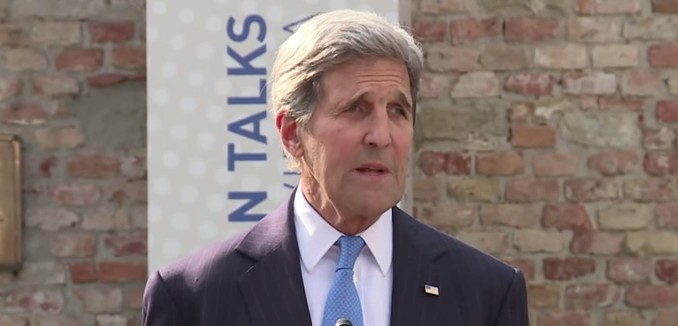Western diplomats said that the “red lines” set out by Iranian Supreme Leader Ayatollah Ali Khamenei last week are preventing any breakthrough in the nuclear talks between Iran and the P5+1 nations, Reuters reported today.
Major issues still yet to be agreed include monitoring and verification steps to ensure that Iran does not cheat on any agreement as well as the pace and timing of sanctions relief.
Iran’s Supreme Leader Ayatollah Ali Khamenei, who wields more power than Rouhani, placed a hurdle in front of the talks last week by ruling out either a long freeze of sensitive nuclear work or opening military sites to inspectors.
“Substantial differences still remain even at this last stage,” a Western diplomat told Reuters. “The positions set out by Khamenei last week make it more difficult to bridge the gaps in the next few days and there is still work to be done.”
“I don’t think we’re at any kind of breakthrough moment yet and we will do whatever we need to do to keep the momentum,” British Foreign Secretary Philip Hammond told reporters.
Khamenei also declared that scientists who have worked on Iran’s nuclear program are off-limits to inspectors. A report in today’s New York Times explained why this access is essential to any deal.
For more than a decade, the C.I.A. has closely followed the workings of one Iranian officer and his sprawling nuclear empire: Mohsen Fakhrizadeh, the relentless driving force behind what Western intelligence agencies say was Iran’s Manhattan Project, its effort to design a compact nuclear weapon that could fit atop a missile. …
In 2003, two National Intelligence Estimates have since concluded, Mr. Fakhrizadeh was told to take his foot off the pedal of his many projects, though there is some evidence that his work has sputtered ahead. No international inspector has met him or stepped into his laboratories. But an accurate assessment of the possible military dimensions of Iran’s nuclear program is impossible without the participation of him and his colleagues.
Khamenei’s speech last week also demanded immediate sanctions relief upon reaching an agreement. These comments represented a significant retreat made from the understandings the parties agreed upon in April. In response to Khamenei’s speech, French Foreign Minister Laurent Fabius said that the Iranian leader’s demands were moving negotiations towards a “bad deal.” An editorial in The Washington Post asserted that if Iran stuck to Khamanei’s demands, the United States should “walk away rather than accept a bad deal.”
U.S. Secretary of State John Kerry is scheduled to meet today with Iranian Foreign Minister Mohammad Javad Zarif. They are expected to be later joined by Hammond, Fabius, and their German and Chinese counterparts.
[Photo: AFP news agency / YouTube ]




